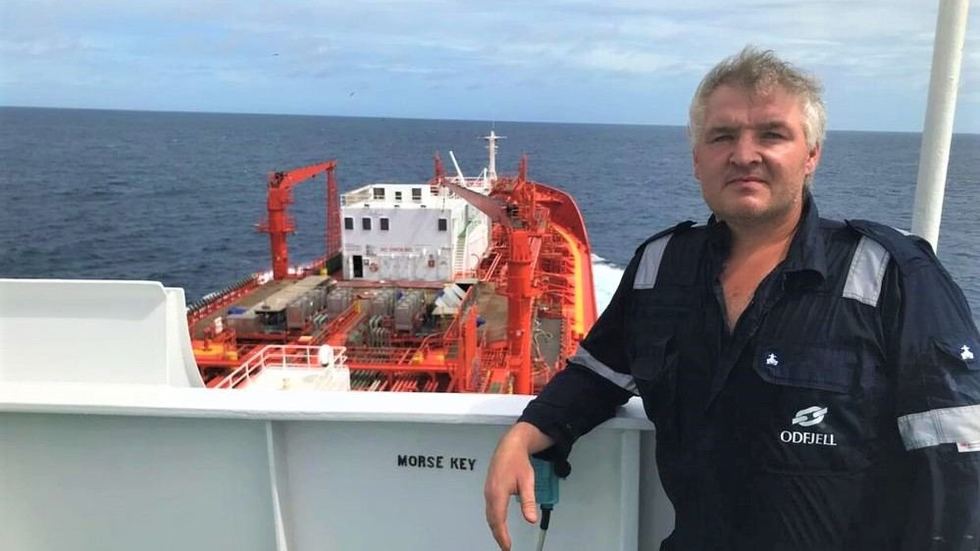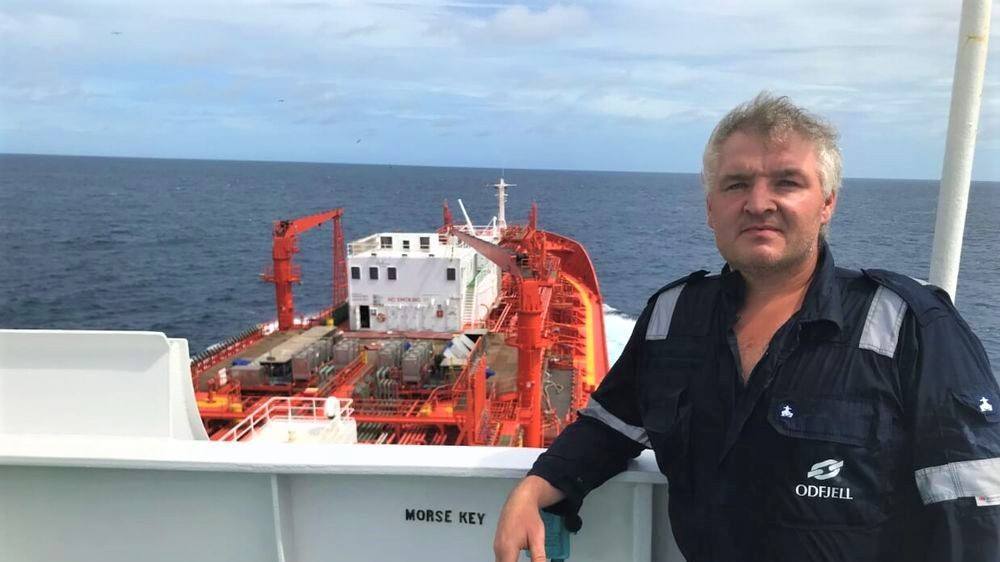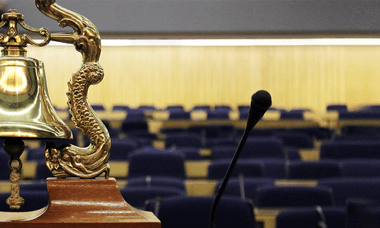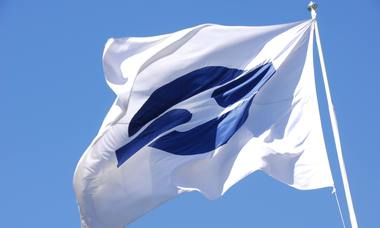The below has been compiled using excerpts from stories by NRK, Bergens Tidende, Firdaposten, rederi.no, Splash247, ICS Shipping and Gov.uk.
In the Indian ocean, en route to Madagascar, Chief Officer Bengt Ellingsund is on board Odfjell’s chemical tanker Bow Fortune. He has not set foot on land since January 12 due to the coronavirus.
“I understand that this will take time, but I did not believe it would take this long. When it comes to crew change, there is little goodwill from the countries we serve. They only accept that we load and unload. Apparently, a crew change is a great risk and we struggle to understand why. We have been infection-free since the outbreak, we have procedures for who can board the ship, and we continuously monitor our own physical condition so that we know we are healthy.”

Chief Officer Bengt Ellingsund onboard Bow Fortune
Keeping the wheels of global trade turning
“The extended time on board may affect the seafarers’ mental health, working conditions and ultimately, safety. The human aspect of this situation is becoming critical, but it seems like the world community does not understand the seriousness of the situation”
Harald Solberg, CEO, Norwegian Shipowners’ Association
The Norwegian Shipowners’ Association (NSA) and the Norwegian Ministry of Foreign Affairs are cooperating with the International Chamber of Shipping, the European Community Shipowners’ Associations and other international organizations towards finding solutions for seafarers who have to travel to and from the ships.
“It is a source of great anguish; first and foremost for the people who are affected but also for their families,” said Harald Fotland, COO of Odfjell SE.
Ships facilitate around 80% of global trade. The inability to facilitate crew change has the potential to cause a logjam to supply chains that have proven so resilient during the COVID-19 pandemic. Most countries around the world are dependent on sea transportation for delivery of essential goods.
“That makes it quite incomprehensible that not more is done to solve the crew change situation. It is vital that governments find solutions,” Fotland said.
“If we do not find a solution to the problems regarding crew change fast, the world trade will stop. That would have serious consequences for the world economy and the trade of goods – also affecting the trade to and from Norway. The international community cannot fail those who keep the wheels turning through this crisis”
Harald Solberg
Adapting to the situation on board
Chief Officer Ellingsund says that Bow Fortune’s 26 crew members have all been on board since January – some even longer.
“The atmosphere on board is ok, we have slowed down the pace on some of the work operations, and the safety is well taken care of. What bothers us most is the uncertainty, that we do not know when we can disembark and go home”
Bengt Ellingsund
This unprecedented and protracted stay on board means he has missed two funerals, a confirmation and a wedding.
“We have initiated several social activities to lighten the mood on board, such as barbeques and basketball tournaments. The shore organization keeps us well informed, and when it comes to facilities on board, we have nothing to complain about. Bow Fortune is a Kværner ship; it is a proper ship!”
Ellingsund and the Bow Fortune are now heading towards Durban in South Africa. A crew change is not possible anytime soon. “We hope that we will make it to Europe in the mid or end of August.”
Governments pledge to take action for crew change
On Wednesday, July 8 at noon local time, ships around the world were encouraged to sound the ship’s horn to remind governments over the need for urgent crew change. The action took place ahead of a critical summit meeting led by the UK government to discuss the impact of COVID-19 on crew changes. At the summit, thirteen countries agreed to new international measures to open up foreign borders for seafarers and increase the number of commercial flights to expedite repatriation efforts.
Odfjell ships took part in the demonstration, and sounded their horns at sea:
The joint statement from the summit expressed the governments’ appreciation to seafarers and pledged to urgently resolve issues that have arisen due to the pandemic:
“Our collective efforts to combat the coronavirus (COVID-19) pandemic have demonstrated the critical need to prioritize the continued functioning of global supply chains to ensure the resilience of our national economies, and the importance of facilitating the safe and efficient operation of the maritime transportation system, which moves over 80% of global trade. Critical to this endeavor is the ability of shipping companies to continue conducting crew changes throughout the world, notwithstanding the restrictions applied by many national authorities in response to the pandemic”.
“We, as the representatives of governments attending the International Maritime Summit on Crew Changes held on July 9, 2020 by the government of the United Kingdom of Great Britain and Northern Ireland, are deeply concerned by the global crisis.
Specifically, those created by ongoing obstacles affecting ship’s crew changes, the impact on the wellbeing of seafarers, and the impact that any failure by governments to resolve these issues will have on maritime transport, which must be permitted to continue to operate safely and efficiently throughout the COVID-19 pandemic”.
The pledge has been signed by the governments of the United Kingdom, Denmark, France, Germany, Georgia, Greece, Indonesia, the Netherlands, Norway, the Philippines, Saudi Arabia, Singapore, the United Arab Emirates and the United States of America. To read the statement in full, visit Gov.uk.
Sources:
Firdaposten (Norwegian): Bengt har vore på jobb på Odfjell-tankaren sidan 12. januar
Norwegian Shipowners’ Association (Norwegian): Mannskapsbytter
NRK (Norwegian): Sjøfolk verda over kjem seg ikkje heim
ICS Shipping: Global shipping fleet to sound horns on 8 July to remind governments over need for urgent crew change
Splash247: 12 countries sign crew change pact
Gov.uk: Joint statement of the international maritime virtual summit on crew changes


